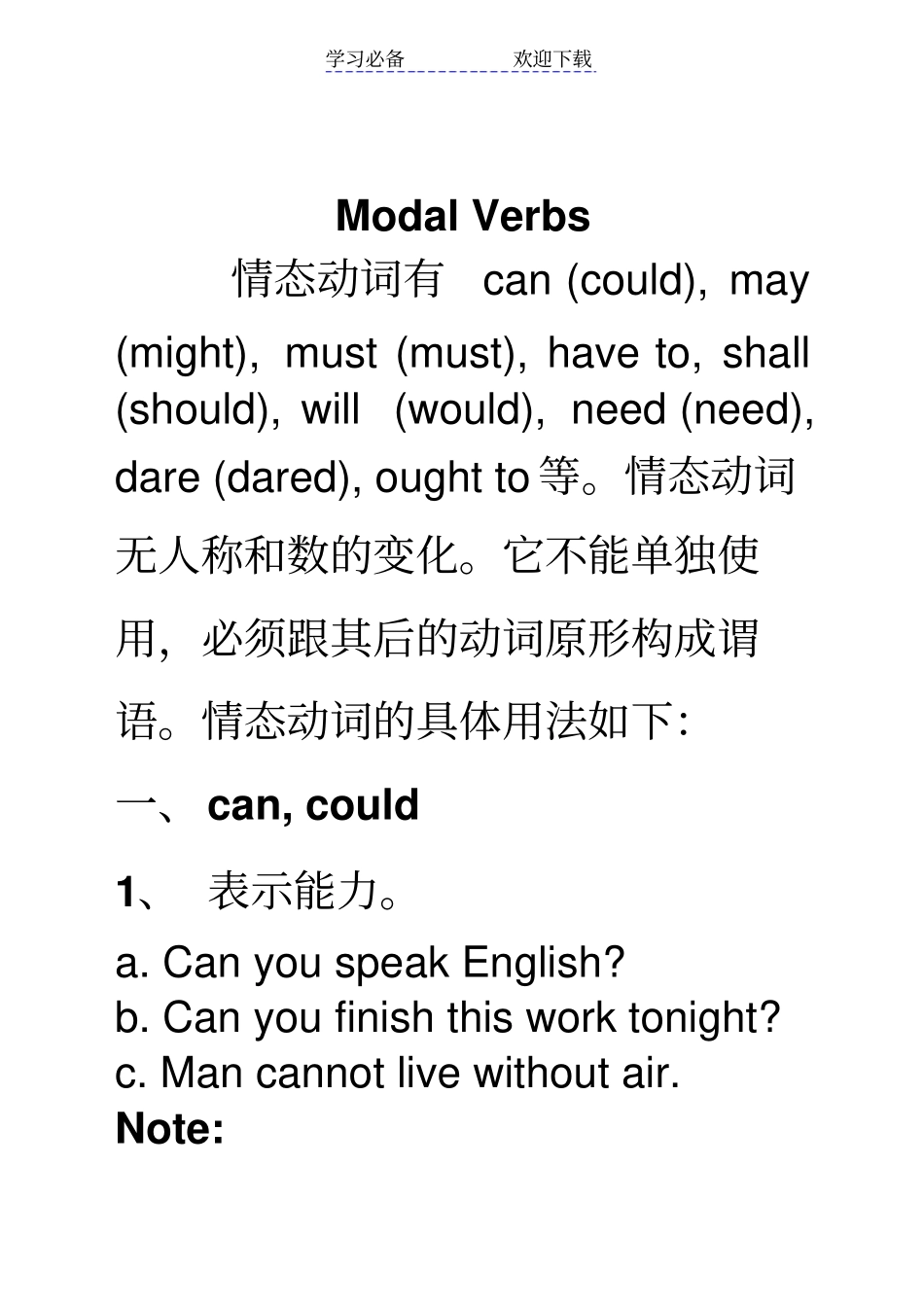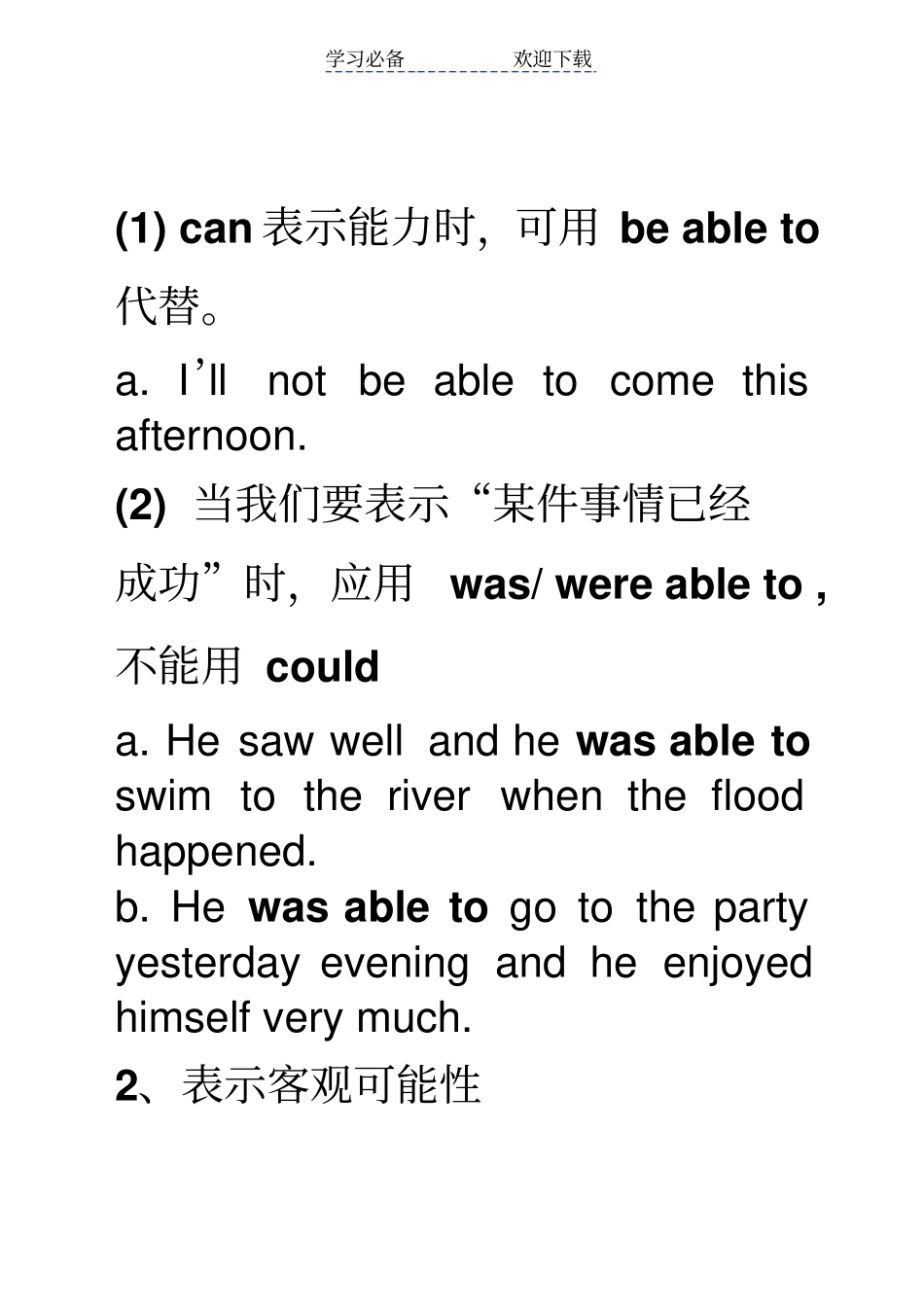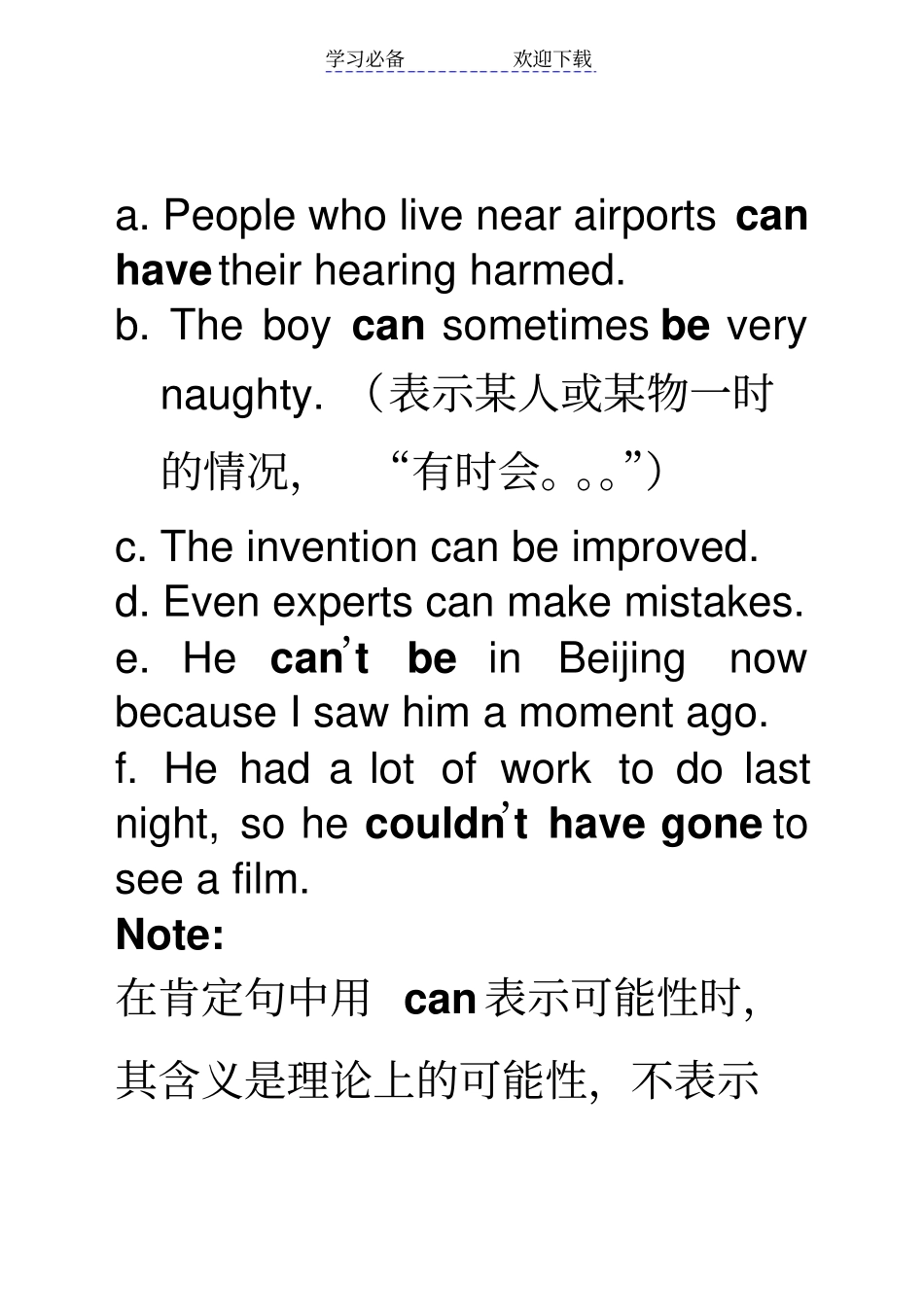学习必备欢迎下载Modal Verbs 情态动词有can (could), may (might), must (must), have to, shall (should), will (would), need (need), dare (dared), ought to 等。情态动词无人称和数的变化。它不能单独使用,必须跟其后的动词原形构成谓语。情态动词的具体用法如下:一、 can, could 1、 表示能力。a. Can you speak English? b. Can you finish this work tonight? c. Man cannot live without air. Note: 学习必备欢迎下载(1) can 表示能力时,可用 be able to代替。a. I’ll not be able to come this afternoon. (2) 当我们要表示“某件事情已经成功”时,应用 was/ were able to , 不能用 could a. He saw well and he was able toswim to the river when the flood happened. b. He was able to go to the party yesterday evening and he enjoyed himself very much. 2、表示客观可能性学习必备欢迎下载a. People who live near airports can have their hearing harmed. b. The boy can sometimes be very naughty. (表示某人或某物一时的情况,“有时会。。。”)c. The invention can be improved. d. Even experts can make mistakes. e. He can’t be in Beijing now because I saw him a moment ago. f. He had a lot of work to do last night, so he couldn’t have gone to see a film. Note: 在肯定句中用 can表示可能性时,其含义是理论上的可能性,不表示学习必备欢迎下载实际的可能性,也就是说,不涉及到是否真会发生。3、表示惊异、怀疑、不相信的态度(主要用与否定句、疑问句或感叹句中)a. Can this be true? b. How can you be so careless! c. This cannot be done by him. 4、表示请求和允许。a. --- Can I go now? --- Yes, you can. b. You can smoke if you want to. c. You can’t pick flowers in this park. Note: 学习必备欢迎下载could 也可以表示请求,语气较委婉,主要用于疑问句,不用于肯定句,回答应用 can--- Could I come to see you tomorrow? --- Yes, you can. / No, I’m afraid not. 5、can 的一些其他惯用法(1). cannot but, cannot he...


